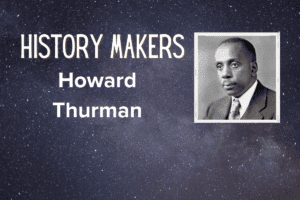
Editor’s Note: We are reprinting this essay, which first ran in 2019, because we feel it is helpful in the current cultural conversation.
Saying “No” is okay.
This is the phrase I repeatedly tell myself after receiving another invitation by a Christian leader to join a group of people talking about race. Usually there’s some incident that precedes the request—they spiked after Charlottesville, after the opening of the Museum of Peace and Justice, after Michael Brown was shot. Suddenly, someone or some organization who never talked about race before is suddenly very interested in talking about race.
And sometimes, I say “No.” Because for me, this journey about racial justice is a lifetime journey. I’m in it for the long haul.
…this journey about racial justice is a lifetime journey. I’m in it for the long haul.
One recent example of a group jumping into a racial justice conversation with limited “deeds done” happened last week, when Relevant began fielding questions online for a race-related podcast. Andre Henry, CSA’s program manager for the Racial Justice Institute and former managing editor for Relevant, questioned their credibility to produce such a podcast. From personal experience, Andre knew that this was yet another example of an organization without a theological conviction or organizational commitment to racial justice trying to curate a conversation about the topic. His subsequent conversations with other former employees confirmed that his experience was more than a personal, isolated one (though that is, by itself, valid) but rather something in the culture and ethos of the organization.
And that’s when saying “No” is okay. People of color, you don’t have to lend your stories and your experiences to provide teachable moments to folks who haven’t shown that they are trustworthy and teachable. You can tell them, instead, to read a book (by a person of color). And if they ask for a booklist? You don’t have to provide them with one. Let them do the research and come up with their own list. Let them do the work.
What does it mean to be trustworthy and teachable?
The first thing that marks trustworthiness on the racial justice journey is a person or an organization with a deep sense of their own limitations, their own errors, and a frustration with how that limits the flourishing in their own life and the life of the organization. True leadership on the racial justice journey starts with a deep sense that this is not how it’s supposed to be, that something is broken. That conviction is what begins the work. For Christians, it might start with the realization that God didn’t intend for people to be killed, simply for being made in God’s image. This is not something God intended us to do.
True leadership on the racial justice journey starts with a deep sense that this is not how it’s supposed to be, that something is broken.
Sometimes we are tempted to try to make folks feel okay, to not offend, to not hurt. “Can’t we just forgive?” is a statement I hear more from Christians than from any other group. But engaging with my own culture’s desire for harmony, I’ve had to tackle the fact that under a veneer of “niceness,” we can accidentally create the perfect conditions for an abscess of (at worst) hate, and (at best) self-deception. When you have a boil, you need to get that infected fluid out, to drain it in order to get rid of the infection. Untreated, the infection can expand and travel to other parts of the body. Sometimes, the impulse to be “nice” puts a bandaid over something that needs to be exposed to the air, get some ointment, and heal. It might hurt, it might sting—but that’s the medicine doing its job. Saving someone from the consequences of their actions isn’t “nice,” it’s aiding them to continue on in a delusion that the thing that is infecting them is okay.
Folks who jump into the racial justice conversation but have no deeds done scare me. Folks who want to convene dialogues or podcasts because race is a relevant topic scare me. Folks who didn’t engage with racial justice when it was costly, unpopular, or seemed irrelevant, but who jump in now because it’s what folks are talking about, scare me.
As Christians, our convictions are rooted in the ways that God invites us into the things he’s doing in the world. Yes, sometimes it’s about having a pulse on society and the times, but it’s also about seeing the story that God is weaving. When you approach justice issues solely or even primarily because they are trendy, you treat the things of justice as merely spin, PR challenges, or disgruntled employees.
But when you’re pursuing something from conviction, from a belief that this is important to God and therefore important to you, the approach is different. There’s a posture of reconciliation—a posture that says, “Something is not right, and I want to understand what that is.” This posture of reconciliation seeks to understand. It goes to the margins to listen. It sets aside ego but quickly takes responsibility.
Racial justice is about the transformation of systems as well as personal transformation—Jesus doesn’t let us stop short at just one. Jesus longs for both individual transformation as well as the transformation of our systems in our society.
People of color, we are called to bear witness. To testify to what we have seen. But this is not a carte blanche that says you have to share your most vulnerable stories with people who might do you harm. Love doesn’t necessarily mean being “nice.” Love means caring enough about ourselves and our communities and our God to know when to say something. Love is also saying, “I care too much about you to lie to you about the effect your choices will have on me.”
And those who have been wronged shouldn’t be asked to go the extra mile to educate their oppressors.
 Nikki Toyama-Szeto is Executive Director of Christians for Social Action.
Nikki Toyama-Szeto is Executive Director of Christians for Social Action.



2 Responses
I think this article does more harm than good. It starts with an attitude of judgment and hostility and that can kill any nascent interest someone may have about the issue. It assumes the worst of others and hinders the progress that may be gained from greater understanding. I can tell you if makes me less interested in learning about the issue.
Hallelujah!